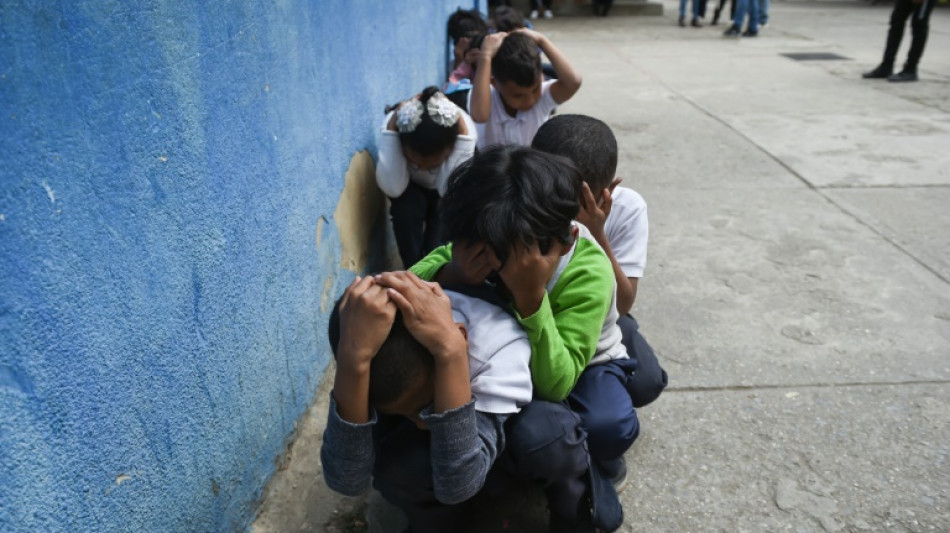
-
 Toronto festival head says Trump tariffs would hurt film quality
Toronto festival head says Trump tariffs would hurt film quality
-
Trump talks tough on China, but early focus elsewhere
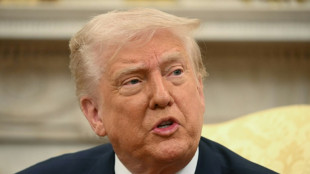
-
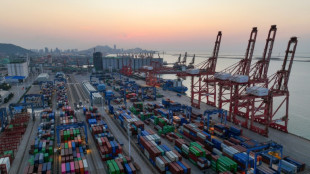 China vows to defend 'justice' in looming trade talks with US
China vows to defend 'justice' in looming trade talks with US
-
Man Utd seek to finish off Athletic Bilbao in chase for Europa glory
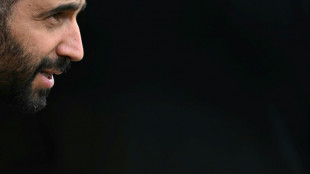
-
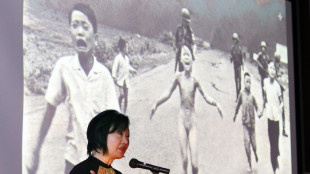 AP to continue crediting 'Napalm Girl' photo to Nick Ut after probe
AP to continue crediting 'Napalm Girl' photo to Nick Ut after probe
-
Colombia moves to join China's Belt and Road
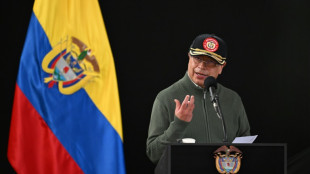
-
 Martinez cried 'for two days' after nearly missing Barca triumph with injury
Martinez cried 'for two days' after nearly missing Barca triumph with injury
-
US, Chinese officials to hold trade talks in Switzerland

-
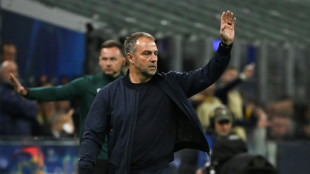 Barca 'will be back' after painful Champions League exit to Inter, says Flick
Barca 'will be back' after painful Champions League exit to Inter, says Flick
-
US jury awards WhatsApp $168 mn in NSO Group cyberespionage suit

-
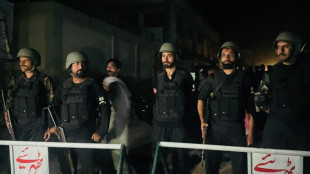 India launches strikes on Pakistan, Islamabad vows to 'settle the score'
India launches strikes on Pakistan, Islamabad vows to 'settle the score'
-
Trump vows 'seamless' experience for 2026 World Cup fans

-
 Motown legend Smokey Robinson sued for sexual assault
Motown legend Smokey Robinson sued for sexual assault
-
Trump hopes India-Pakistan clashes end 'very quickly'

-
 Frattesi shoots Inter into Champions League final after Barcelona epic
Frattesi shoots Inter into Champions League final after Barcelona epic
-
India launches strikes on Pakistan, Islamabad vows retaliation
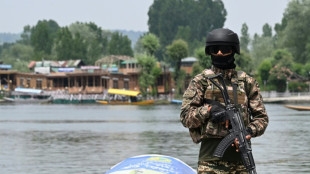
-
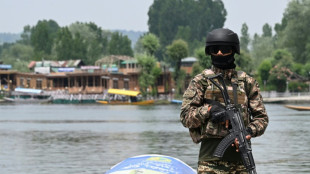 India launches strikes on Pakistan as Islamabad vows retaliation
India launches strikes on Pakistan as Islamabad vows retaliation
-
Alpine shock as F1 team principal Oakes resigns

-
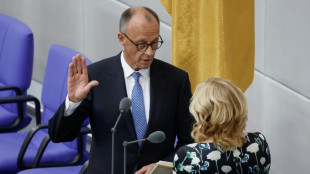 Merz elected German chancellor after surprise setback
Merz elected German chancellor after surprise setback
-
Gujarat edge Mumbai in last-ball thriller to top IPL table

-
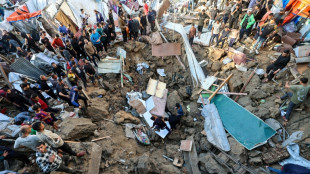 Israel's plan for Gaza draws international criticism
Israel's plan for Gaza draws international criticism
-
SpaceX gets US approval to launch more Starship flights from Texas
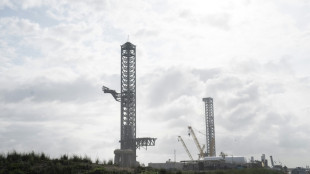
-
 Alpine F1 team principal Oakes resigns
Alpine F1 team principal Oakes resigns
-
Colombia's desert north feels the pain of Trump's cuts
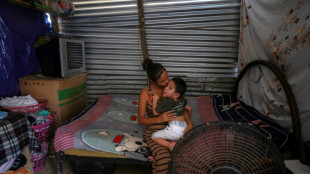
-
 Arsenal determined 'to make a statement' against PSG in Champions League semi-final
Arsenal determined 'to make a statement' against PSG in Champions League semi-final
-
Top US court allows Trump's ban on trans troops to take effect
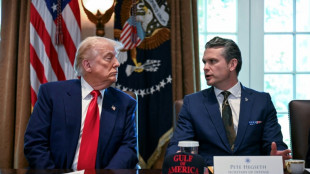
-
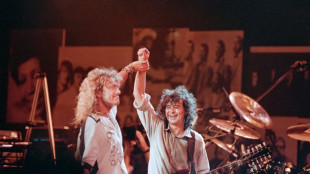 Whole lotta legal argument: Led Zeppelin guitarist Page sued
Whole lotta legal argument: Led Zeppelin guitarist Page sued
-
US, Yemen's Huthis agree ceasefire: mediator Oman
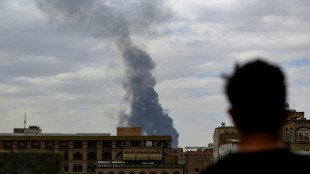
-
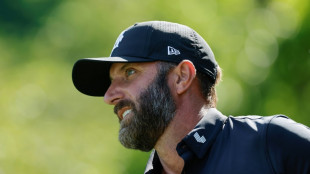 Johnson receives special invite to PGA Championship
Johnson receives special invite to PGA Championship
-
Trump says US should to stop 'subsidizing' Canada as trade talks continue
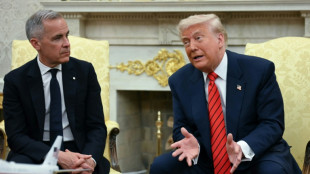
-
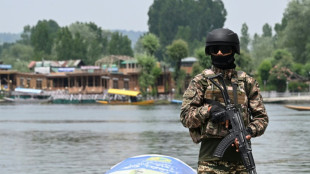 Indian PM vows to stop waters key to rival Pakistan
Indian PM vows to stop waters key to rival Pakistan
-
Thousands demonstrate in Panama over deal with US military
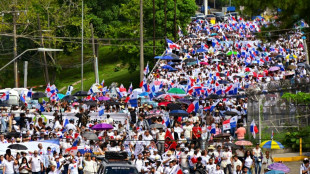
-
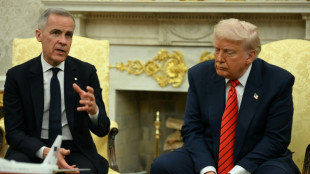 Canada 'never for sale', Carney tells Trump
Canada 'never for sale', Carney tells Trump
-
Vatican readies for conclave lockdown

-
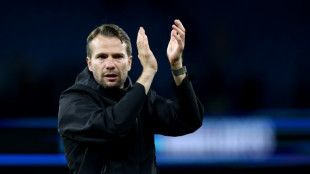 Championship club Watford sack manager Cleverley
Championship club Watford sack manager Cleverley
-
New German leader Merz stumbles out of the blocks
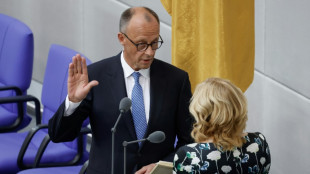
-
 'Wagatha Christie': Vardy and Rooney settle on legal costs
'Wagatha Christie': Vardy and Rooney settle on legal costs
-
Defending Rome champion Zverev blames burn out on poor run of form
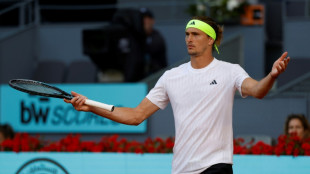
-
 No signs of US recession, Treasury Secretary says
No signs of US recession, Treasury Secretary says
-
Israel pummels Yemen airport in reprisal against Huthis
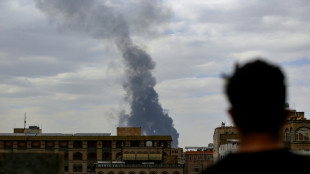
-
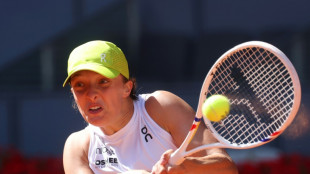 Swiatek struggling with 'perfectionism' ahead of Rome
Swiatek struggling with 'perfectionism' ahead of Rome
-
Germany's Merz elected chancellor after surprise setback
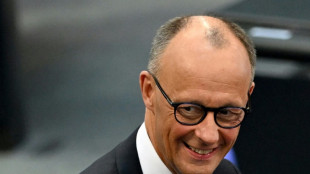
-
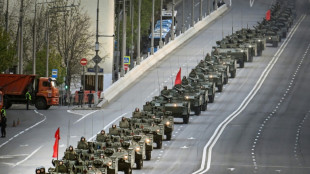 Ukraine fires drones on Moscow days before WWII parade
Ukraine fires drones on Moscow days before WWII parade
-
EU proposes ending all Russian gas imports by 2027

-
 UK, India strike trade deal amid US tariff blitz
UK, India strike trade deal amid US tariff blitz
-
Move over Met Ball. For fashion wow head to the Vatican

-
 Stocks retreat as traders cautious before Fed rates call
Stocks retreat as traders cautious before Fed rates call
-
EDF complaint blocks Czech-Korean nuclear deal

-
 Germany's Merz faces new vote for chancellor after surprise loss
Germany's Merz faces new vote for chancellor after surprise loss
-
US trade deficit hit fresh record before new Trump tariffs
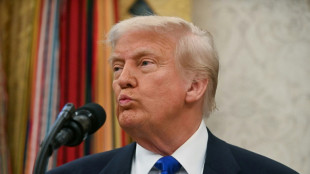

'Keep calm': Teaching Venezuelan kids to hide from bullets
Children fling themselves onto the floor and cover their heads with their hands as loud bangs ring out in the classroom. In one of Venezuela's most violent neighborhoods, this is a shootout drill.
Three boys beat a metal sheet to mimic shots fired. Their peers -- from the first grade of school to the last -- react quickly.
Some take cover in classrooms, others in corridors or the courtyard of the Manuel Aguirre primary and secondary school in the sprawling, crime-riddled slum complex of Petare in the capital, Caracas.
Just days earlier, there was a shootout between gangs nearby, which forced classes to be suspended.
The drill takes about 20 minutes.
For the smallest children, it starts as they are playing with hoops in sports class. They drop to the floor and crawl to a demarcated "safe space" against the wall.
Some of the children scream as they curl up, face down, and cover their ears.
Finally, the school bell chimes three times to indicate the end of the drill.
It will be repeated in two months' time.
"Just as we teach to read and write, we have to give children tools so that they can protect themselves," Yanet Maraima, principal of the school with 900 pupils told AFP.
It is also important that the children can apply what they learned if needed "at home."
- Afraid to go to school -
The training is organized by the International Committee of the Red Cross (ICRC) at Manuel Aguirre and other schools in Caracas.
Manuel Aguirre is in a sector of Petare overflowing with houses of naked brick walls and zinc roofs built into the mountainside, connected by narrow alleys and staircases.
Violence between drug gangs is so rife here that children can distinguish with frightening ease between shots fired from different guns, and at what distance.
"It's a dangerous area," pupil Breylis Breindenbach, 16, told AFP.
"Sometimes I'm afraid to come to school."
Petare had a rate of 80 violent deaths per 100,000 inhabitants in 2022, according to the Venezuelan Violence Observatory, an NGO. There are no official statistics.
The rate is more than double the already alarming national figure of 35.3 per 100,000 -- six times the world average.
In the same neighborhood, Marisela Mujica, a nun, leads a prayer at the Jesus Maestro school in the gang-disputed Jose Felix Ribas neighborhood.
"We had a tense week, we are going to pray for peace," the nun tells pupils gathered in the courtyard.
"What do we want?" she asks the kids. "Peace!" comes the response in chorus.
The Jesus Maestro school has 722 preschool and primary school pupils, but when tensions flare up, not even 200 attend, with civilians caught up in the crossfire and many afraid to leave their homes.
"You never get used to the shots, you live with that constant worry," principal Ivonne Gonzalez told AFP.
"It is like having a school in the Wild West."
In Petare, added Mujica, "the gun is the law. We must fight so that the children see it differently."
- 'Keep calm' -
Similar security drills happen in other Latin American countries with high levels of violence, such as Brazil and Mexico.
In Rio de Janeiro, they have been in place since 2009 in over 1,500 schools in areas where drug gangs or vigilante militia run rife.
"To have training to live in this kind of environment is very important," Renan Ferreirinha, Rio's municipal secretary of education, told AFP.
"Hopefully one day it will no longer be necessary."
For Gonzalez, the most important thing is that the children internalize what they learn.
She recounted that a pupil recently told her about getting caught up in a street shootout.
"What did you do?" she asked the child. "I fell to the ground and crept under a car," was the response.
Mujica goes from class to class to reinforce the lessons.
"What is the first thing we should do" in case of a shooting? she asked one group of students.
A girl replies, correctly: "Keep calm."
M.A.Colin--AMWN